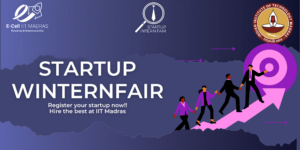Indian Space Research Organisation chairman S Somanath on Wednesday said ISRO has successfully done significant collaborations on its space missions and is also discussing a possible mission to the moon with Japan Aerospace Exploration Agency.
Somanath also said there is a good opportunity to launch a mission to explore planet Venus by 2028.
He was delivering the inaugural talk on Indian Capabilities for Space and Planetary Exploration at the 4th Indian Planetary Science Conference organised at Physical Research Laboratory.
The ISRO chief said it was important to have a connection between scientific institutions across the world and ISRO in building complex missions. He cited the example of the TRISHNA mission, designed to observe the earth’s surface in the thermal infrared domain, which has been developed by ISRO and its French counterpart CNES.
“We are also discussing a possible mission to the moon with JASA (Japan Aerospace Exploration Agency) where the land rover will be built by them and they will launch it using a Japanese rocket,” said Somanath, who is also Secretary of the Department of Space.
He said ISRO will look at possible engagement with other agencies in exploratory missions.
“It is very important that it will happen only when they have confidence in you and our instruments and measurement systems are complementary to their goals,” he said.
“ISRO has been successful in doing significant collaborations on its space missions, and it is important to have a connection between scientific institutions across the world and ISRO in building complex missions of this nature,” Somanath said.
Talking about the ambitious “Gaganyaan” project—which envisages demonstration of human spaceflight capability by launching a crew of three to an orbit of 400 km for a three-day mission and bringing them back safely to earth—the ISRO chairman said it was going on very well.
This project gives a lot of opportunities to conduct experiments on board, with possibilities like micro-gravity, space mining, material testing, and space-based observations.
“We need to work on this and come up with scientific goals through the Gaganyaan programme. Sending a man up there is one part, but doing something very meaningful is something we are all looking at,” he said.
Somanath informed discussions are underway for ISRO’s proposed mission to Venus.
“Venus is a very challenging planet to explore and there is a good opportunity to launch it by 2028,” he said, adding there is a lot of interest in the science community to make use of the capability in this mission.
“I am very sure that we will take it up further,” he added. Somanath said ISRO will seek further approval for DISHA payloads and will look at the possibility of landing a mission to Mars a few years from now.










